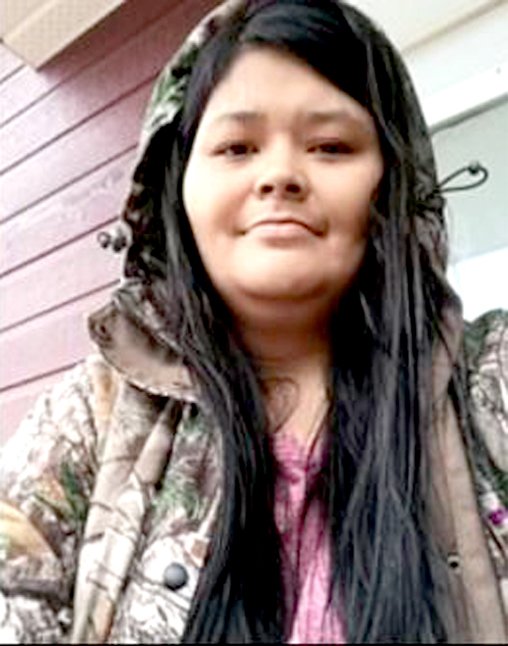By Yvonne Sam

Joyce Echaquan’s death is a national shame but nurses are not the only one to blame
The death in a Quebec healthcare facility of 37-year-old Joyce Echaquan from the Atikamekw nation of Manawan, coupled with the degrading circumstances surrounding her demise, has not only dealt a severe blow to the gut of the nursing profession, but has once again made Quebecers painfully aware of Premier Francois Legault’s deep- seated denial of racism, and highlighted national failure to treat the disease embedded in its very core.
Following Radio-Canada’s investigative program, Enquête, uncovering of stories of sexual violence by Quebec provincial police officers toward aboriginal women in the Quebec town of Val d’Or, the Liberal government was called upon to spring into action.
An inquiry led by retired Superior Court Justice Jacques Viens, was launched in December 2016 under the Liberal government with the judge given a broad mandate: To look into the treatment of First Nations and Inuit people in Quebec by the public service. Over 38 weeks of hearings, a total of 1,188 stories and expert opinions culminated in a 520-page damning report, wherein the judge stated “it is impossible to deny Indigenous people in Quebec are victims of “systemic discrimination” in accessing public services.
The established unequal relations have deprived Indigenous peoples of the means to allow them to fulfil their own destiny and have, in the process, given a certain mistrust of public services.”
Viens found that prejudice toward Indigenous peoples remained widespread in the interaction between caregivers and patients.
During the Commission, the Centre Hospitalier de Lanaudière, located in Joliette, where Gloria died was flagged as a problem. The report further stated that improvements were needed across the diapason, including in policing, social services, corrections, justice, youth protection and mental-health services, as well as to the school curriculum to properly reflect the history of First Nations and Inuit in the province.
In 142 calls to action laid out by the judge the first recommendation was that Quebec should apologize to First Nations and Inuit for the harm they have endured as a result of provincial laws, policies and practices. The provincial ombudsman was recommended to be put in charge of ensuring implementation of the calls to action.
On October 2, 2019, two days after the Viens Commission Report, in a speech made entirely in French, Premier Legault delivered an historic apology: “I offer Quebec’s First Nations and Inuit people the most sincere apology from the entire state of Quebec. The state of Quebec has failed in its duty to you.”
The Grand Chief of the Algonquin Anishinabeg Nation Tribal Council, an English speaker, expressed her disappointment that the Premier did not deliver a portion of his speech in English.
Now, in a seemingly better-late-than-never effort, Legault is scheduled to meet with Indigenous leaders, and address the National Assembly during the first week of October, concerning the report.
Adrienne Jérôme, Chief of the Lac Simon First Nation and spokesperson for the AFNQL Council of Elected Women, claims that the public apology given by Premier Legault in October 2019 is the only action witnessed thus far.
Quebec’s Minister responsible for Indigenous Affairs, Sylvie D’Amours, on Tuesday during question period at the National Assembly, stated that 51 of the 142 recommendations from the Viens report currently have an action plan.
“A call for action isn’t that simple, it’s a continuous process,” she said.
The Oka Crisis a 78-day armed standoff — between the Mohawk community of Kanesatake, the Sûreté du Québec, and the Canadian army, forced the federal government on August 26, 1991, to establish the Royal Commission on Aboriginal peoples (RCAP), to address the issues confronting Canada and its relationship to Indigenous peoples, The Commission was chaired by Georges Erasmus, (former head of the Assembly of First Nations) and René Dussault, a Quebec lawyer. There were four Aboriginal and three non-Aboriginal commissioners in total, who toured Canada and Quebec and held 178 public hearings, visited 96 communities, consulted individuals and reviewed relevant literature and past inquiries.
When the RCAP released its five volume, 4,000 page report in 1996, it set out a 20-year agenda for implementing changes to better the lives of Indigenous people in Canada. Were any of the recommendations implemented?
One is somewhat taken aback at the current flapping of wings and gums in collective surprise and vocalization, as if the displayed behavior by the nursing personnel towards the Indigenous woman was a novel act. In no way should it be considered an isolated occurrence.
Truthfully, there are far too many individuals titled nurses who, in essence and reality are truly curses, and serve no good to the profession.
History continues to show that Canada’s poor treatment of her Indigenous people, and until the nation ceases denial of systemic racism; the future will be the same as the past.
Delay is the deadliest form of denial, as evidenced by the lack of action in implementing the divers recommendations, and the consequent demise of Joyce Echaquan…R.I.P
Aleuta—— The struggle continues.














